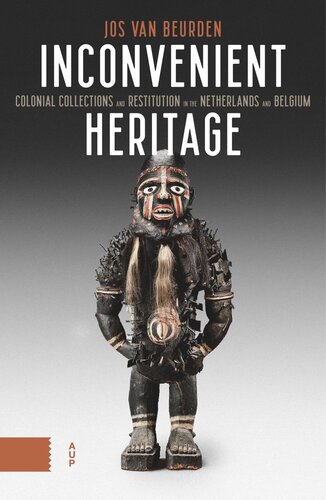

Most ebook files are in PDF format, so you can easily read them using various software such as Foxit Reader or directly on the Google Chrome browser.
Some ebook files are released by publishers in other formats such as .awz, .mobi, .epub, .fb2, etc. You may need to install specific software to read these formats on mobile/PC, such as Calibre.
Please read the tutorial at this link: https://ebookbell.com/faq
We offer FREE conversion to the popular formats you request; however, this may take some time. Therefore, right after payment, please email us, and we will try to provide the service as quickly as possible.
For some exceptional file formats or broken links (if any), please refrain from opening any disputes. Instead, email us first, and we will try to assist within a maximum of 6 hours.
EbookBell Team

4.3
58 reviewsThe discussion about objects, human remains and archives from former colonial territories is becoming increasingly heated. Over the centuries, a multitude of items – including a cannon of the King of Kandy, power-objects from DR Congo, Benin bronzes, Javanese temple statues, M.ori heads and strategic documents – has ended up in museums and private collections in Belgium and the Netherlands by improper means. Since gaining independence, former colonies have been calling for the return of their lost heritage. As continued possession of these objects only grows more uncomfortable, governments and museums must decide what to do. How did these objects get here? Are they all looted, and how can we find out? How does restitution work in practice? Are there any appealing examples? How do other former colonial powers deal with restitution? Do former colonies trust their intentions? The answers to these questions are far from unambiguous, but indispensable for a balanced discussion.